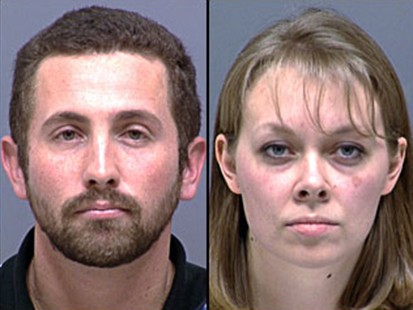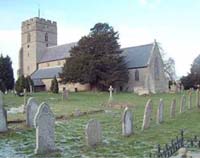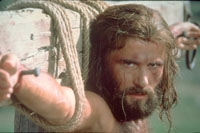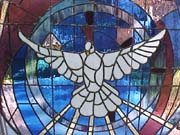Greetings Saints!
The search committee has completed its work in making nominations for the next Bishop of Georgia. I am among the five persons nominated and will stand for election on September 12 as the Diocese of Georgia meets in convention to elect its Bishop.
If the clock was rolled back a couple of years, I would have been able to assure you that I did not feel called to serve as Bishop of Georgia, and that I would have then readily turned down the honor of a nomination. But during that time, I had been encouraged by some who knew me well to see how I had already been involved in oversight in ways not typical for a priest, but that fits well with the central role of a Bishop. I did prayerfully consider this and have over the past 18 months had this affirmed in different ways. I therefore allowed the people who contacted me about making a nomination on my behalf to do so.
I have worked through the search committee to articulate as clearly as I could my vision for creating a team to proactively work toward clergy wellness while supporting our 71 congregations to more fully live into being the Body of Christ in their communities. Being named alongside four other well-qualified persons is humbling. It is also the search committee's thoughtful and prayerful confirmation that I should stay on this path toward the election. Full particulars on the nominees will be posted shortly at www.georgiabishopsearch.org
I do feel called to this. But I do not know whether God has called me to this election or to be the next Bishop of Georgia. I do know that God has laid on my heart a process for effecting positive changes for this diocese that I love. I will be therefore be available to the election and see where it leads.
This is extremely awkward for me with King of Peace. One would never go to an employer and state "I might be leaving in September, or I might stay around." But our relationship is more than employer and employee and I trust that you will join me in trusting God with what comes next. I am confident that if God has called me to this and if I am elected, then I am also confident that God has a plan for King of Peace and the congregation will not just be fine, but will grow from strength to strength.
The vestry has known of this possibility and has prepared for the possible future. Were I to be elected in September, I would remain at King of Peace through Sunday, October 12, with a goodbye function on the 11th. An interim priest would be hired for the year following my leaving, during which time a search committee could be formed and a new pastor hired. In The Episcopal Church, a parish (and we will soon be a parish) has a good deal of autonomy in hiring its clergy, with the Bishop providing support in that process and maintaining only the ability to veto a poor fit (which is rare). No one would be sent to King of Peace. The congregation would be involved in the decision through a search committee and through having a chance to have candidates come to King of Peace to celebrate the Eucharist and preach.
I get ahead of things only to let you know, that if I am elected, plans are in place to make sure that you are all well cared for. In the meantime, I counsel you to stay calm knowing that God did not bring us this far to leave us and all shall be well.
I ask for your prayers for the discernment of the diocese, for what we most want is God's will for this election.
peace,
Frank+
The Rev. Frank Logue, Vicar
King of Peace Episcopal Church
Labels: Bishop search












 I had heard of Jesus. Everyone had by then. He was the healer from Nazareth that had set tongues wagging from the Decapolis to the Negev. I traveled more than most, and heard of Jesus everywhere I went.
I had heard of Jesus. Everyone had by then. He was the healer from Nazareth that had set tongues wagging from the Decapolis to the Negev. I traveled more than most, and heard of Jesus everywhere I went. 
 I do believe that when we run around like ecclesiastical version of
I do believe that when we run around like ecclesiastical version of  The case, whose trial begins today, stems from the death of 15-month-old Ava Worthington whose bronchial pneumonia and blood infection could have been cured with antibiotics. The only treatment she received was prayer and anointing with oil. Her parents are charged with manslaughter and criminal mistreatment using a 1999 Oregon law created in large part due to the high number child deaths among the kids at the Worthington's Oregon City church, the Followers of Christ.
The case, whose trial begins today, stems from the death of 15-month-old Ava Worthington whose bronchial pneumonia and blood infection could have been cured with antibiotics. The only treatment she received was prayer and anointing with oil. Her parents are charged with manslaughter and criminal mistreatment using a 1999 Oregon law created in large part due to the high number child deaths among the kids at the Worthington's Oregon City church, the Followers of Christ.

 A great windstorm arose, and the waves beat into the boat, so that the boat was already being swamped. But he was in the stern, asleep on the cushion; and they woke him up and said to him, "Teacher, do you not care that we are perishing?" He woke up and rebuked the wind, and said to the sea, "Peace! Be still!" Then the wind ceased, and there was a dead calm. He said to them, "Why are you afraid? Have you still no faith?" And they were filled with great awe and said to one another, "Who then is this, that even the wind and the sea obey him?"
A great windstorm arose, and the waves beat into the boat, so that the boat was already being swamped. But he was in the stern, asleep on the cushion; and they woke him up and said to him, "Teacher, do you not care that we are perishing?" He woke up and rebuked the wind, and said to the sea, "Peace! Be still!" Then the wind ceased, and there was a dead calm. He said to them, "Why are you afraid? Have you still no faith?" And they were filled with great awe and said to one another, "Who then is this, that even the wind and the sea obey him?"






 From an etymological viewpoint, the term derives from the word for “base” or “foundation.” It refers not to territory, as in the Kingdom of Siam, but to dominion, as in a semi-autonomous state that is under the sovereignty of another entity. In a way, our own Anglican Communion is an example of such a kingdom, as each of nearly forty churches – including our own Episcopal Church – is semi-autonomous. Yet each is also part of the Anglican family, and all of us under the sovereignty of God in Christ.
From an etymological viewpoint, the term derives from the word for “base” or “foundation.” It refers not to territory, as in the Kingdom of Siam, but to dominion, as in a semi-autonomous state that is under the sovereignty of another entity. In a way, our own Anglican Communion is an example of such a kingdom, as each of nearly forty churches – including our own Episcopal Church – is semi-autonomous. Yet each is also part of the Anglican family, and all of us under the sovereignty of God in Christ.  These questions are those created for a Cursillo Reunion Group. Cursillo is a three-day retreat held in the Episcopal and Catholic churches. It is like Walk to Emmaus in the Methodist church and Tres Dias in other denominations, including pentecostal churches. Cursillo means "short course" and it is intended to be a short course in Christianity. The talks are given mostly by lay people about how they live out their faith day to day.
These questions are those created for a Cursillo Reunion Group. Cursillo is a three-day retreat held in the Episcopal and Catholic churches. It is like Walk to Emmaus in the Methodist church and Tres Dias in other denominations, including pentecostal churches. Cursillo means "short course" and it is intended to be a short course in Christianity. The talks are given mostly by lay people about how they live out their faith day to day.





 Our sister church
Our sister church 

 Once, as I traveled through the Himalayas, there was a great forest fire. Everyone was frantically trying to fight the fire, but I noticed a group of men standing and looking up into a tree that was about to go up in flames. When I asked them what they were looking at, they pointed up at a nest full of young birds. Above it, the mother bird was circling wildly in the air and calling out warnings to her young ones. There was nothing she or we could do, and soon the flames started climbing up the branches.
Once, as I traveled through the Himalayas, there was a great forest fire. Everyone was frantically trying to fight the fire, but I noticed a group of men standing and looking up into a tree that was about to go up in flames. When I asked them what they were looking at, they pointed up at a nest full of young birds. Above it, the mother bird was circling wildly in the air and calling out warnings to her young ones. There was nothing she or we could do, and soon the flames started climbing up the branches. If her small heart was so full of love, how unfathomable must be the love of her Creator. That is the love that brought him down from heaven to become man. That is the love that made him suffer a painful death for our sake.
If her small heart was so full of love, how unfathomable must be the love of her Creator. That is the love that brought him down from heaven to become man. That is the love that made him suffer a painful death for our sake. I went to Jesus at night. It had to be night. Jesus was a noted Rabbi to be sure, but I was a member of the Sanhedrin, the select inner circle of Jewish leaders. I could not afford to be seen with Jesus. Not yet anyway. So I went to him under the cover of darkness. It strikes me as funny all these years later. I went to the light of the world at night.
I went to Jesus at night. It had to be night. Jesus was a noted Rabbi to be sure, but I was a member of the Sanhedrin, the select inner circle of Jewish leaders. I could not afford to be seen with Jesus. Not yet anyway. So I went to him under the cover of darkness. It strikes me as funny all these years later. I went to the light of the world at night. 


























1 Comments:
At 6/30/2009 8:39 AM, Rhonda said…
Rhonda said…
Thank you, so very true.
Post a Comment
<< Home